#SocialContractTheory
Text
The Republic: Plato's Timeless Masterpiece of Philosophy

The Republic is one of the most influential works in the history of Western philosophy. Written over two thousand years ago, it still holds immense relevance today.
If you are a student of philosophy or literature, you really should read this masterpiece.
In this areicle, we will explore the main ideas of The Republic and why it is a must-read for every student.
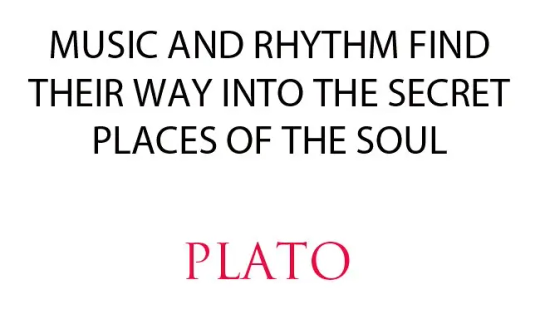
Original quote by Plato. Photo by QuotesEverlasting. Flickr.
Overview of Plato's Philosophy and Background
Plato was born around 427 BC in Athens, Greece, and was a student of Socrates. He founded the Academy in Athens in 387 BC, which was one of the first institutions of higher learning in the Western world.
Plato was known for his writings, where he developed his own philosophical ideas through dialogues. His most famous work was ‘The Republic,’ a dialogue that explains Plato’s theory of a just society.
In this book, he introduced the famous concept of the ‘Allegory of the Cave’ which explained his ideas on knowledge and perception.
Metaphysics, Epistemology, and Ethics
Plato's philosophy was based on metaphysics, epistemology, and ethics. His metaphysical theories revolved around the existence of the soul and the theory of forms.
According to Plato, a form is an eternal and unchanging concept that represents an idea or a concept that exists in the abstract.
For instance, the perfect circle or triangle exists as a perfect form in the world of forms. On the other hand, the material world that we live in is nothing but a reflection of these perfect forms.
When it comes to epistemology, Plato believed that knowledge could be gained through reason and intuition rather than through experience.
He believed that knowledge was innate and that we could not learn anything new but could ‘remember’ things that we already knew from the world of forms. Plato argued that the ultimate goal of human existence was to reach the ultimate truth and knowledge.
Lastly, Plato's ethical theory centered around the idea of justice and the concept of the ‘good life.’ He believed that a just society is one that is governed by philosopher-kings who are knowledgeable and virtuous.
Plato argued that the good life is the one that is lived in accordance with reason and virtue, which ultimately led to happiness and fulfillment.
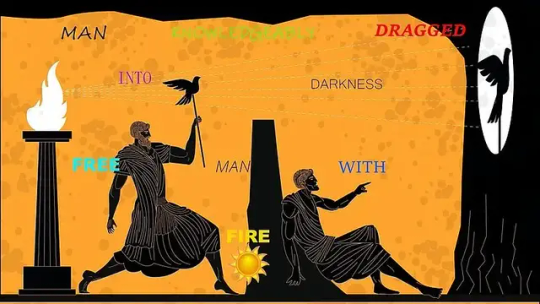
Platos Allegory of the Cave. Photo by Carter Watkins. Flickr.
The Allegory of the Cave: Meaning and Interpretation
Perception vs. Reality: A Profound Theme
At the core of 'The Allegory of the Cave' lies the theme of perception versus reality. The prisoners in the cave perceive shadows on the wall as reality, but they are mere representations. Plato likened people to prisoners in a cave, with the world as the cave and our senses as the shadows. To him, individuals had to transcend their limited experiences and seek truth beyond these illusions.
A Political Interpretation
Plato's allegory also finds political implications. He compared those in power to puppeteers manipulating the masses through illusions. True democracy, he argued, required educated rulers with a clear understanding of reality.
Modern Relevance
The allegory's interpretation extends to modern times, with some seeing it as a commentary on technology. People's increasing dependence on gadgets and screens, preventing them from experiencing the true world, draws parallels to the cave's prisoners.
Enlightenment and Liberation
The allegory also represents enlightenment, where a freed prisoner gains knowledge and endeavors to inspire others. Plato asserts that once enlightened, a person cannot revert to their previous limited understanding of the world.
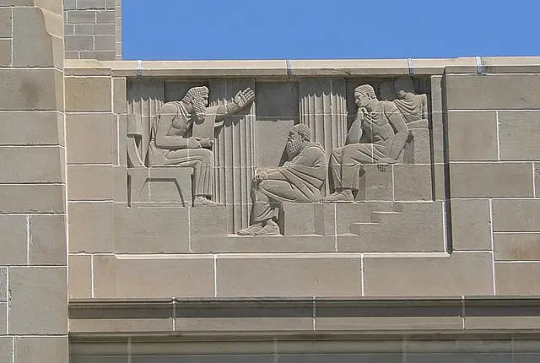
Nebraska State Capitol sculpture. Photo by Ammodramus. Wikimedia.
The Ideal State: Plato's Vision for a Perfect Society
One of the key features of Plato's ideal state is a belief that it should be run by the most competent and wise individuals. Plato suggested that only the intellectuals had a clear understanding of the needs of the society and how best to govern it.
Therefore, he suggested that the ideal state should be an aristocracy where the rulers were knowledgeable and just. This way, the government will be free from corruption, self-interest, and power struggles.
Rolls and Responsibilities
Plato's ideal state was also one where everyone had a specific role to play in the community. The society was divided into different classes; the guardian class, the philosopher-kings, the auxiliary class, and the commoners.
According to Plato, each class had a particular skill set and responsibilities, and they should work in harmony to achieve the common good. The commoners, for instance, were the laborers, and they produced goods and services; the philosophers, on the other hand, were the thinkers and decision-makers.
The Education System
Another critical element of Plato's ideal state was the education system. Plato believed that education should be designed to bring out the best in each person and to equip them with the necessary skills to contribute meaningfully to the society.
Plato's education system is unique in that it aimed to produce well-rounded individuals who could apply their knowledge in different aspects of the community. Also, education was what determined the class a person belonged to.
Vision for an Ideal Society
Plato envisioned an ideal society where the citizens worked together to promote the common good. He believed that human society was similar to a body, where every part has a specific role to play, and they work in harmony to achieve a common goal.
His ideal state aimed to achieve this by promoting the values of equality, justice, and fairness. In such a society, every citizen was expected to contribute positively to the community and uphold moral values.

The statue of Plato in front of the Academy of Athens. Original Work by Leonidas Drosis. died 1880. Photo by Leonidas Drosis. Wikimedia.
Philosopher-Kings: Role and Importance in the Republic
The Ideal Ruler
The philosopher-king is the embodiment of Plato's idea of the ideal ruler. Unlike other leaders who might act out of self-interest or political expediency, the philosopher-kings sole motivation is to promote the greater good of society.
Plato believed that only those who have a deep understanding of truth and knowledge can rule effectively, as they are not beholden to the opinions of the masses or swayed by their own biases and desires.
The Importance of Wisdom
In Plato's Republic, wisdom is the key virtue that sets philosopher-kings apart from other rulers. A true philosopher is someone who seeks knowledge for its own sake, rather than for any practical or utilitarian purpose.
By cultivating wisdom, philosopher-kings can make informed decisions that are based on reason rather than emotion and are thus more likely to create a just and harmonious society.
The Limits of Democracy
Plato was deeply skeptical of democracy, viewing it as a flawed system that was prone to corruption and instability.
In his view, the democratic process was characterized by a lack of order and coherence, with decisions often made based on the whims of the majority rather than careful consideration of the facts.
Philosopher-kings, on the other hand, are not swayed by such forces and are instead able to rule with an impartial and objective mindset.
The Importance of Virtue
Although wisdom is key, it is not sufficient on its own for a ruler to govern effectively. Philosopher-kings must also possess other moral virtues such as courage, justice, and temperance.
These virtues ensure that the ruler is not only wise but also has the ethical foundation necessary to make decisions that are in line with the greater good. Without such virtues, a philosopher-king could become just as corrupt and self-interested as any other ruler.
The Relevance Today
While Plato's concept of philosopher-kings may seem idealistic and impractical, it has relevance in today's world. We are living in an age of increased division and polarization, with many leaders making decisions that cater primarily to their own interests or to narrow interest groups.
By emphasizing the importance of wisdom, virtue, and a commitment to the greater good, Plato's philosophy offers a way to counteract these divisive tendencies and promote a more just and harmonious society.

Plato in a cave with his followers bringing their self-portraits for examination, Walters Manuscript. Flickr.
Criticisms and Controversies: Debates Surrounding Plato's Ideas
Criticism of Plato's Theory of Forms
One of the most criticized aspects of Plato's philosophy is his theory of Forms, also known as the theory of Ideas.
According to Plato, there is an eternal and unchanging realm of Forms that exist beyond the physical world. The Forms are perfect and unchanging, while the physical objects we see around us are merely imperfect copies of these Forms.
Critics argue that this theory is unproven and difficult to understand. Some claim that the Forms are too abstract and cannot be connected to reality, while others argue that the Forms are simply an unnecessary addition to Plato's philosophy.
Controversies around Plato's Views on Women
Plato's views on women have been another point of controversy. In his famous work The Republic, Plato argues that women should be educated and included in society, but he also insists that women are inferior to men and should not hold political power.
This contradiction has led to debates about whether Plato was a feminist or a sexist. Some argue that Plato's ideas were revolutionary for his time and that he should be recognized as a feminist thinker. Others claim that his views on women were no different from the prevailing attitudes of his society.
Debates about Plato's Views on Democracy
Plato's views on democracy have also been a subject of intense debate. In The Republic, he argues that democracy is a flawed system of government that is prone to chaos and instability.
According to Plato, the only way to achieve true justice and virtue is through a philosopher-king who rules with wisdom and reason.
Critics of Plato's views on democracy argue that this position is undemocratic and elitist. They claim that Plato's philosophy does not account for the diversity of human experience and that his ideal of a philosopher-king is unrealistic and impossible to achieve.
The Disputed Authorship of Some of Plato's Works
Another controversy surrounding Plato's ideas concerns the authorship of some of his works. Some scholars argue that not all of the dialogues attributed to Plato were written by him.
They point to differences in style and content among the works and suggest that some may have been written by his students or even by other philosophers.
This controversy has led to debates about how to interpret and understand Plato's philosophy.
Some argue that we should focus only on the works that we can be sure were written by Plato, while others claim that his influence extends beyond the texts that are traditionally attributed to him.

Plato quoe on Music. Photo by QuotesEverlasting. Flickr.
Legacy and Influence: Impact on Western Philosophy and Politics
The first and most significant influence of Western philosophy on politics is the idea of natural law. Natural law is a concept that describes the laws and principles that govern human behavior and the universe, which are independent of human rules and regulations.
This concept finds its roots in ancient Greek philosophy, particularly in the works of Aristotle. Aristotle believed that the natural world had its own laws that humans could discern and use to create just and virtuous societies.
The concept of natural law has played a crucial role in the development of modern Western democracies, such as the United States, where the belief in unalienable rights, including life, liberty, and the pursuit of happiness, is enshrined in the Constitution.
The Social Contract Theory
The second influence of Western philosophy on politics is the concept of the social contract. The social contract theory is based on the idea that humans agree to give up some of their individual freedom and rights in exchange for protection and security provided by the state.
This theory has its roots in the works of English philosophers such as John Locke and Thomas Hobbes. Hobbes argued that without the state, life would be "solitary, poor, nasty, brutish, and short."
Therefore, individuals should enter into a contract with the state to establish social and political order.
The social contract theory has played a crucial role in the development of modern Western democracies as it provides citizens with a framework to understand their rights and responsibilities within the state.
The Just State
Thirdly, the concept of a just state is another significant contribution of Western philosophy to politics.
Ancient Greek philosophers such as Plato and Aristotle developed the concept of a just state, which centers around the idea that the government has a moral obligation to provide citizens with what they need.
The idea was expanded upon by Enlightenment thinkers, who believed that the government's primary role was to protect individual rights and ensure the greatest good for the greatest number of people.
This concept has had a significant impact on modern Western democracy, which places a high value on individual freedoms and rights.
Political Philosophy
Finally, the idea of political philosophy as a discipline has had a lasting impact on Western politics. Political philosophy seeks to answer questions about how society should be organized and governed, including who should rule, what their authority should be, and what role they should play in society.
Political philosophy has played a critical role in the development of Western democracies, providing new ideas and theories that have shaped governance systems and provided leadership guidance.
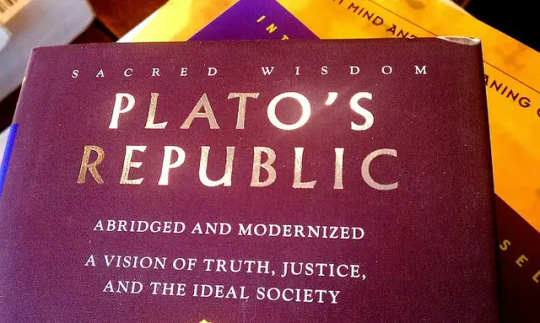
Sacred wisdom - Plato's Republic. Photo by Quinn Dombrowski. Flickr.
Importance of studying the Republic today
In conclusion, 'The Republic' remains a timeless masterpiece of philosophy that explores profound ideas about perception, reality, justice, governance, and education. Plato's vision of an ideal state, with philosopher-kings at the helm, challenges readers to critically examine the nature of society and the role of individuals within it.
Despite the passage of time, the ideas presented in 'The Republic' continue to inspire and provoke thoughtful reflection on the fundamental questions of human existence and the pursuit of a just society.
Sources: THX News & IEP.
Read the full article
#AllegoryoftheCave#Democracycritique#Idealstate#Juststate#Philosopher-kings#Plato'sphilosophy#Plato'sviewsonwomen#Socialcontracttheory#TheRepublic#Wisdomandvirtue
0 notes
Text
youtube
#SocialContractTheory#politicalscience#upsc#ias#civilservices#extrajudicial#PSIR#RausIAS#rahulpuri#rahulpurpsir#rauspsir#internationalaffairs#psir#psiroptional#Youtube
1 note
·
View note
Text
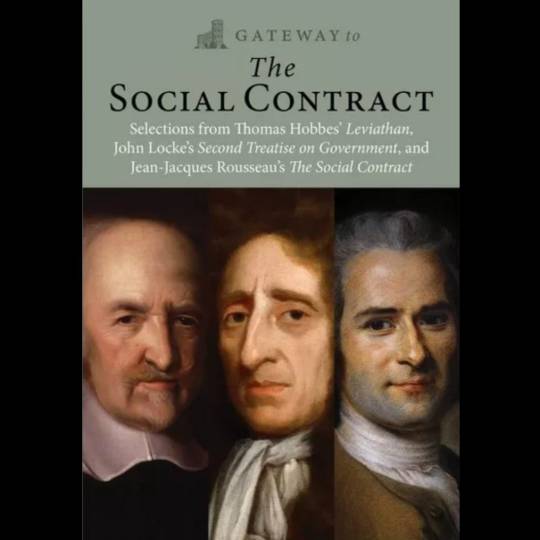
The Social Contract, with its famous opening sentence 'Man is born free, and he is everywhere in chains', stated instead that people could only experience true freedom if they lived in a civil society that ensured the rights and well-being of its citizens.
(Jean-Jacques Rousseau, The Social Contract)
Hobbes #Kant #Locke #JeanJacquesRousseau #Rousseau
SocialContract #Society #CivilRights #SocialContractTheory
Philosophy #LawDegree #LawSchool #School #Degree #DegreeProgram
Art #History #Classic #ClassicLiterature #Literature #Author #Book #Writer #Writing
Classicsology
ClassicsologyX
0 notes
Text

📖 The origin of the state 📖
✒ Origin of state These are the theories on the origin of state as have been formed and developed as a result of the political thought and philosophy in the ancient time until the enlightenment period in Europe.
1. Natural Theory. The social urge of the human being to be within a group of people in the community as in sociology describes that `man is a social being." The social group provides the political development to stay and work together with common standard law in the community later on transform as a state.
2. Force Theory. The creation of the state through the constant war and invasion of the great warriors in the ancient time dominated the weak that later on formed a state.
3. Divine Right Theory. The rulers of the past advocated the political dominance of authority and power through their own ordained mandate that they represented the state as on the basis of the divine right ( as God created the state),It was in this nature that the divine rights of kings has the absolute power and influence over the subjects.
4. Social Contract Theory.This is the right of the people to have the deliberate and voluntary contract on the right to overthrow the kings and rulers against corrupt governance to organize a new government with common interest for all the people.
🔗 https://www.politicalscienceview.com/the-origin-of-the-state/
#OriginOfTheState#PoliticalScience#PoliticalPhilosophy#PoliticalTheory#TheState#NaturalTheory#politicalThought#State#ForceTheory#DivineRightTheory#SocialContractTheory#OriginOfPolitical#Kinship#Religion#Industry#War#Sovereignty#NatureOfState#KindsOfState#Government#ImportantOfState
0 notes
Text
The Ethics of Internet Censorship (2/2/2021)
What did the founding fathers intend when they passed the First Amendment that guarantees the freedom of expression? They intended it to be a protection for citizens from the government for their beliefs and opinions. But, in 1791 when the Bill of Rights was adopted, the internet did not exist and therefore was not the primary avenue of communication that it is today. It also meant that this amendment does not specify the protection of expression online.
The internet is a prolific means for individuals to express themselves through social media platforms. But, this convenience also gives rise to controversial topics such as whether it is ethical for the information collected about you to be sold to other people. However, this is only one half of the major problem derived from major companies such as Google, Facebook, and Twitter. They have the power to expose the data they have collected on individuals, but they also have the power to inhibit the expression of those same people. Every year, I see more and more censorship instances in which major social media companies block posts or add warnings to content posted by users of their software. It has increasingly become an avenue for these companies to push for certain ideologies and oppress contrary views. It is no doubt that companies, such as Twitter, have used their influence to control what their users can see on their platforms. An article by Townhall dives into more specifically how big tech companies use their power to suppress conservatives. These acts consist of things that are seemingly minor, such as adding “fact-check” warnings to conservative posts, but not liberal ones. It makes sense that a company who wants liberals elected to office would have the incentive to use a series of propaganda to influence elections. But, is this biased censorship ethical?
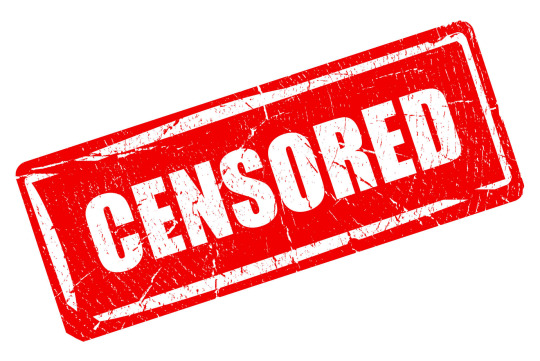
It is true that by using the large tech companies’ services, the users are agreeing to their terms and conditions. So, you may think the company should certainly have the power to control what information is appropriate for their platforms. However, with the size and influence these companies have on the public eye and the ability for individuals to express their first amendment rights, it becomes much more complicated whether it is ethical for companies to exercise control over expression within their platform, especially since many would consider these companies to have monopoly power.
Let’s consider this situation under the Social Contract Theory. Assuming that the right to freedom of expression is an implicit agreement amongst the society, any actions that impede this right would be unethical as the individual preventing others’ freedom of speech are not bearing the societal burden of having to accept that other have the right to disagree. The problem with this situation however, is that the Social Contract Theory expects the government to enforce the protection of freedom of expression, which they have not done to a full enough extend on the internet. Society would better coexist if individuals listened to each other and accepted disagreement and discussion on controversial topics. The existence of biased censorship breaks down the ability of individuals to have these necessary discussions. Therefore, because of the social unrest caused by the censorship, I believe this theory would deem the censorship unethical.
Looking at the situation from the lens of Kantianism reaches a similar conclusion. In Kantianism, people must be treated as an end, not a means to an end, and rules must be universal. In the circumstances of censorship of specifically right-leaning individuals, both expectations of Kantianism are violated. Censoring only, or almost exclusively, conservatives means that the rule of maintaining truthful and non-misleading information is violated by bias and thus the rule is not universal. Furthermore, censoring one side of the political spectrum is also a means in which a company can impose their viewpoints on the public. Thus, they are using these censored individuals as a means to an end (or to promote their political agenda). Both of these reasons support that although the platform belongs to the company, their censorship of conservatives is unethical.
Of course, content that is in the form of bullying or is otherwise dangerous should be taken down and that is a different problem to address entirely. Nevertheless, in the circumstance that opinion or perspective based information is censored, we must ensure that it is censored uniformly across all ideologies or not at all. Otherwise, the censorship is unethical.
0 notes
Photo
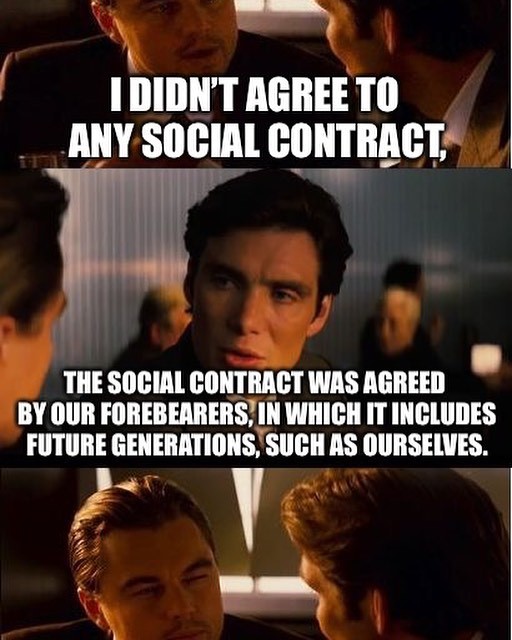
#socialcontracttheory the unborn and young never can agree nor disagree to the world of which they’re not architects, but they may be subject to them due to the decisions of their ancestors legacy. https://www.instagram.com/joebon890070/p/BtzW0A8gptY/?utm_source=ig_tumblr_share&igshid=1hoaux99r272y
0 notes
Text
Humans were born free, yet everywhere they are in chains #Rousseau #socialcontracttheory #haero #wisdom
Humans were born free, yet everywhere they are in chains #Rousseau #socialcontracttheory #haero #wisdom
Humans were born free, yet everywhere they are in chains#Rousseau #socialcontracttheory#haero#wisdom
— AndOREAH Fabellini (@haerone) August 29, 2017
from Twitter https://twitter.com/haerone
View On WordPress
0 notes
Quote
"To be driven by our appetites alone is slavery, while to obey a law that we have imposed on ourselves is freedom."
- Jean-Jacques Rosseau, The Social Contract
0 notes
Text
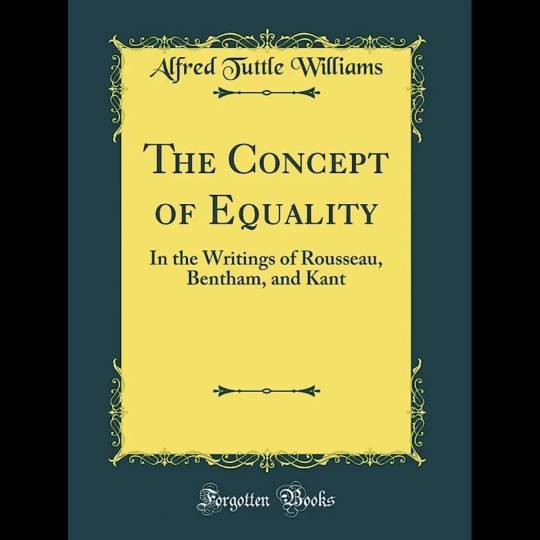
The Social Contract, with its famous opening sentence 'Man is born free, and he is everywhere in chains', stated instead that people could only experience true freedom if they lived in a civil society that ensured the rights and well-being of its citizens.
(Jean-Jacques Rousseau, The Social Contract)
Hobbes #Kant #Locke #JeanJacquesRousseau #Rousseau
SocialContract #Society #CivilRights #SocialContractTheory
Philosophy #LawDegree #LawSchool #School #Degree #DegreeProgram
Art #History #Classic #ClassicLiterature #Literature #Author #Book #Writer #Writing
Classicsology
ClassicsologyX
0 notes
Text
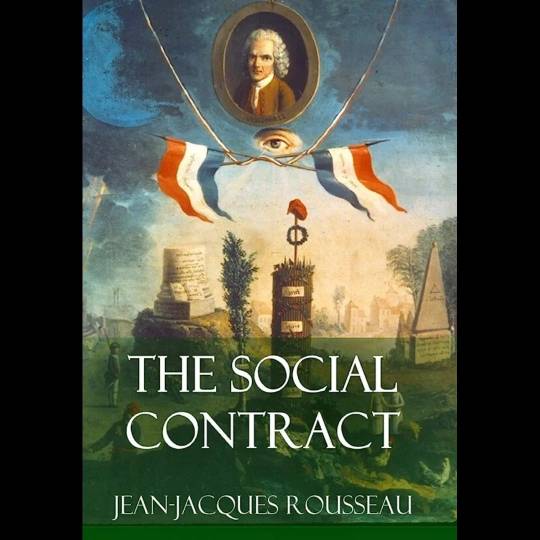
The Social Contract, with its famous opening sentence 'Man is born free, and he is everywhere in chains', stated instead that people could only experience true freedom if they lived in a civil society that ensured the rights and well-being of its citizens.
(Jean-Jacques Rousseau, The Social Contract)
Hobbes #Kant #Locke #JeanJacquesRousseau #Rousseau
SocialContract #Society #CivilRights #SocialContractTheory
Philosophy #LawDegree #LawSchool #School #Degree #DegreeProgram
Art #History #Classic #ClassicLiterature #Literature #Author #Book #Writer #Writing
Classicsology
ClassicsologyX
0 notes